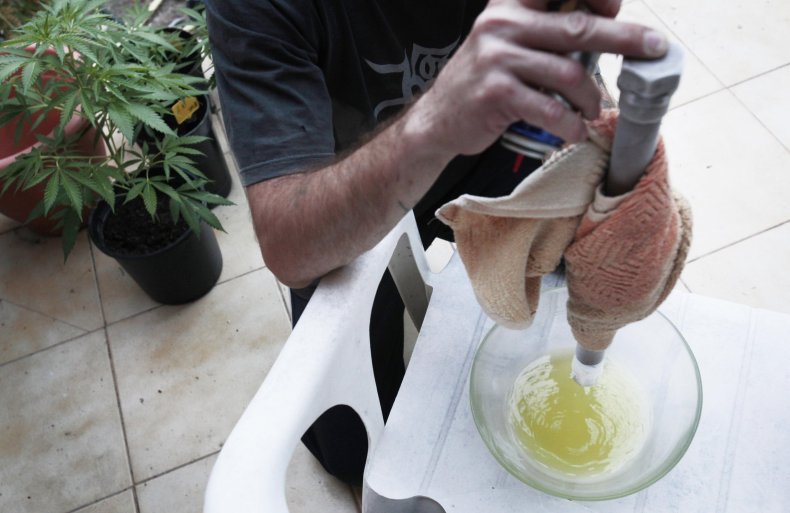[ad_1]
Most Americans are unable to describe any health, usage or legalization differences between THC, the chemical responsible for marijuana’s psychological effects, and CBD, a separate, cannabis-derived extract found in edibles and oils—even in states where neither is officially legal, a new poll says.
Several states, including North Dakota, Wyoming and Louisiana, are revisiting potential marijuana legalization efforts, including second considerations of how tax revenue and enforcement tactics should differ between the legalized use of CBD, cannabidiol and THC (tetrahydrocannabinol) products.
But data published by Invisibly’s Realtime Research survey of 1,087 U.S. adults found the public is largely unaware of key differences between the various cannabis cousins. More than two-thirds, 68 percent, said they didn’t realize there was any difference between the non-psychoactive CBD and the psychoactive THC component found in marijuana.
Fifty-eight percent of the respondents said they were unaware of any difference between marijuana and CBD use, the survey found. Less than two-thirds of respondents who had previously consumed CBD said there were also unaware of any differences. Conversely, 36 percent of people who took CBD in the past thought the effects would be essentially like those from marijuana.
Federal and state laws regarding each chemical have confused Americans as to the legal, health or treatment purposes of marijuana and CBD. State legislatures across the country are also grappling with legalization and health disputes.
Virginia’s Legislature voted this week made it the first Southern state to legalize marijuana. But some weary Virginia lawmakers have reconvened to sort out confusion from the legislation.
On Thursday, South Dakota Governor Kristi Noem called a special session for state lawmakers because of concerns she and some Republicans have about a voter-passed medical marijuana bill set to go into effect July 1.
In Louisiana, more bipartisan discussion of legalization was prompted by Republican state Representative Richard Nelson, who authored a 22-page decriminalization bill. And in Montana, GOP Governor Greg Gianforte revived a recreational marijuana legalization bill after members of both parties began working to hash out a deal.
Sixteen states and Washington, D.C., have fully legalized all recreational use of THC and CBD.
A majority of U.S. adults in the survey, 53 percent, said they will not use any CBD product for any reason. As The Motley Fool website noted Thursday, nonusers make up the sizable majority in almost any sample-sized survey of Americans. And women use CBD products at a rate of two to one, compared with men.
CBD is one of hundreds of components of marijuana, but the chemical does not create a “high” when ingested by itself, Dr. Peter Grinspoon noted on the Harvard Medical School website following 2018 studies. Numerous recent research studies, many funded by the federal government, reported CBD was highly successful in treating some forms of childhood epilepsy. CBD has also been found to successfully treat symptoms of anxiety, insomnia and chronic pain.
“In humans, CBD exhibits no effects indicative of any abuse or dependence potential…. To date, there is no evidence of public health related problems associated with the use of pure CBD,” the World Health Organization wrote.
Newsweek reached out to the survey’s authors for comment but did not hear back before publication.

Getty Images DESIREE MARTIN AFP/Stringer
[ad_2]
Source link